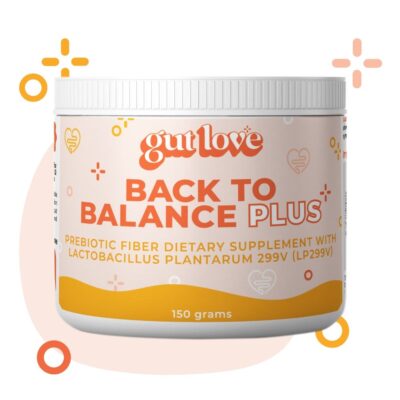Sexual relationships and sexual health form an important part of the lives of many people. It is a multidimensional aspect, encompassing physical, emotional, social, mental, and spiritual well-being. Even for those without a partner, sexual health can be a significant part of their identity and influence their life choices.
Sexual Health and IBD: What You Need to Know
For those with inflammatory bowel diseases such as Crohn’s and Colitis, sexual health and IBD can be significantly affected. In fact, more than 50% of women with IBD suffer from sexual dysfunction and 45% of men are affected by erectile dysfunction.
Factors such as disease symptoms, complications, and treatment can contribute to a decline in libido. What’s more, they can also contribute to poor body image and emotional issues which impact sex and intimacy.
Common Challenges and Causes
It can be very difficult to determine which of these factors is causing sexual dysfunction. That’s why we have put together this article on sexual health and IBD. It outlines some of the most common ways IBD can affect sexual health, including physical, emotional, and psychological causes, and provides advice on what you can do if you are experiencing any of these issues.
Physical causes
IBD can cause a range of physical symptoms or situations that make sex or physical intimacy difficult:
Fatigue: Extreme tiredness is a common symptom of IBD. A lack of appetite, poor absorption of nutrients, flare-ups, and pain can all leave you feeling like you have little energy. As a result, you may feel too weak or too tired to have sex.
Incontinence: Many people with IBD fear having an ‘accident’ during sexual activity. Even if it doesn’t happen, the worry of it occurring can affect your sex drive and even prevent men from getting or sustaining an erection.
Fistulas or abscesses: Some people with Crohn’s or colitis develop fistulas and/or abscesses around the genitals and anus. These can also lead to scarring. These symptoms can be embarrassing but can also make sex painful or at times, even impossible.
Pain and tenderness: IBD can cause chronic pain and tenderness which can affect your desire to have sex. Sex can also make this pain worse.
Surgery: Surgery for IBD can cause abdominal tenderness and there may be recovery periods where you are not up for sex. It is common for those who have had stoma surgery to find intimacy difficult while they adjust to having a bag, but many find their sex life improves as the surgery means they are no longer dealing with many of the other IBD symptoms. For men over 50, surgery can also cause issues with erections and ejaculations.
Emotional causes
Living with IBD and its symptoms can have a significant impact on your emotional wellbeing. The symptoms can lead to a range of negative feelings and change how you feel about yourself and your body, all of which can affect your desire and ability to have sex:
Embarrassment: Embarrassment is a common feeling for those with IBD. You may feel embarrassed about having the disease or about the symptoms it creates.
Fear: You might worry about how physical symptoms, like passing gas or urgently needing to use the toilet, will impact your sex life. You may also fear how a partner will react to your condition and its symptoms. This fear may even stop you from pursuing a new relationship.
Body image: IBD and its symptoms can impact your body image. You may not feel sexy or desirable or you may feel negative about your weight or physical appearance due to scars or a stoma bag.
Psychological causes
IBD can affect your mental health and research suggest that those living with the condition may be twice as likely as the general population to suffer from a mental health condition such as:
Anxiety: Anxiety related to IBD symptoms or a sexual partner’s reactions to them can lead to a reduced sex drive or a fear of being intimate. Anxiety can also impact sexual performance, such as being unable to get or maintain an erection or being able to climax.
Depression: Those with IBD are more prone to depression. Depression can impact libido and sexual satisfaction.
Effects of medication
While most of the medications used in the treatment of IBD have not been found to impact sexual health, there is some evidence to suggest that steroids can affect sexual satisfaction and cause mood swings and depression. If taking medication for depression, this may alter your sex drive or cause impotence problems.
Some treatments may not directly impact your sexual health but may still affect your sex life. For example, if you are taking suppositories, this may influence when you can, or when you want to be intimate.
What you can do
If you feel that IBD is affecting your sex life, then you are not alone. There are a range of things you can do that can help you feel more in control of the situation and help tackle some of the impacting factors:
Keep communication open: One of the best ways you can address and overcome your concerns is to talk about them. We know that this can be difficult, especially if you feel embarrassed or worried. But, by letting your sexual partner(s) know how you feel and the reasons why IBD can affect your sex drive, you can help develop mutual understanding and reassurance.
Prepare for sex: If, to have a fulfilling sex life, your encounters need to be less spontaneous, that is ok. Preparing for sexual intimacy can help you feel less anxious and improve physical comfort. You may want to take pain relief beforehand or apply a lubricant, for example. Going to the toilet before intercourse or choosing a time of day where your bowel is less active may also help.
Explore other forms of intimacy: If sexual intercourse is difficult or painful, you can try other forms of intimacy that will help maintain a physical and emotional connection. Examples include hand holding, massage, kissing, or cuddling.
Seek support: It might be beneficial to speak to a counselor or sexologist who can help your work through your emotions and assist you in finding mental and practical ways to address the issues that impact your sex life. You can also reach out to charities, support groups, and other organizations for advice and the opportunity to speak to people who understand your situation.
You can also contact us for IBD nutrition guidance, up-to-date resources, and support from our friendly and knowledgeable specialists.







Please more positive articules!!! This arricule makes me only upset!